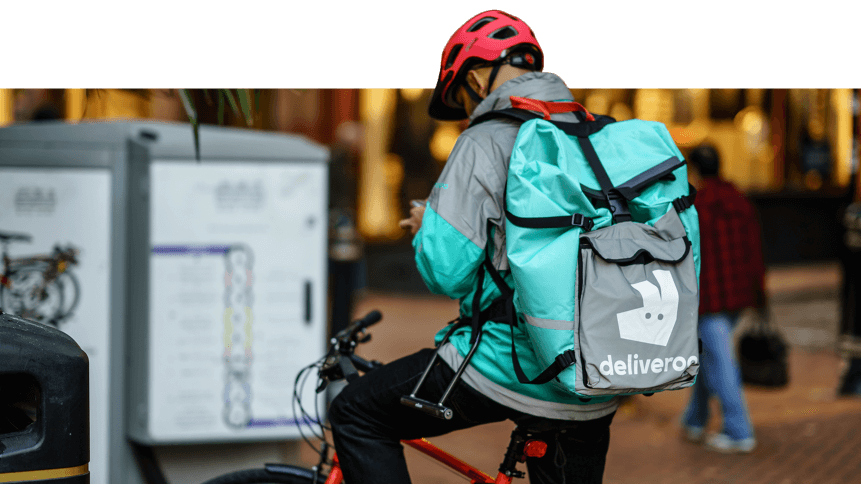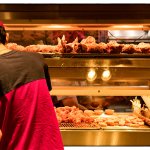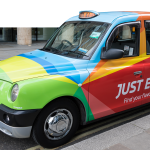The rise of ‘dark kitchens’ in the food industry

Gone are the days when for a taste of fine dining, you’d have to book a table at your favorite restaurant.
The surging popularity of companies such as Deliveroo, Uber Eats, and DoorDash has provided unbridled access to cities’ individual culinary offerings delivered directly to a customer’s door, or desk.
For restaurants, these food delivery services have unlocked lucrative new sources of revenue. Outlets that previously faced physical capacity limitations or daily footfall slumps can instead tout goods on slick digital platforms— provided they are willing to part with a cut of the bill.
The appeal to participate in this on-demand economy is such that the food industry, in response, is undergoing fundamental change.
The rise of dark kitchens
With the aim of shifting more plates, as well as reducing disruption from delivery drivers during service hours, delivery platforms and food businesses have sprung a new approach to food preparation, known as dark kitchens.
These are kitchens located off-site serving only delivery customers. Utilizing advanced food preparation techniques, low-rent space and data-driven optimization, they are designed to maximize restaurant and delivery platform revenue in the emerging sector. The approach is similar to the concept of warehousing in retail. The discrete pop-up kitchens are set up to provide low-cost and efficient hubs for quick production and distribution.
Plenty of examples of dark kitchens are already in operation. In the UK, Deliveroo operates and hosts 11 sites— home to a total 66 units, or ‘Rooboxes’, in partnership with a range of clients such as Gourmet Burger Kitchen, pizza shop Crust Bros and sushi bar Yoobi. These sites are based in no-frills locations in easy reach of popular areas for business. One, for example, is located in an industrial estate in London’s east end, but just a short drive or cycle to the city’s financial center, Canary Wharf, where lunchbreak business is thriving.
Smart kitchens-as-a-service
Despite less than salubrious locations, however, on the inside, these delivery-only kitchens are often kitted out with advanced food prep technology and additional services packed in.
CloudKitchens is the multi-million dollar creation of former Uber chief and co-founder Travis Kalanick. Describing itself as a provider of “smart kitchens” for delivery-only restaurants, the company effectively operates as a property developer. For restaurants struggling to meet demand from existing facilities, CloudKitchens’ customers can lease high-tech, off-site kitchen space— the company also provides order management software which can integrate with popular delivery platforms.
Among the host of features included in its smart kitchens— beyond a fully-functioning commercial unit— are 24/7 building access, daily cleaning services, free wifi, and a “helpful facility team” that includes fire safety and security, according to its website.
YOU MIGHT LIKE

Are last mile delivery technologies taking off?
The popularity of delivery platforms and the rise of low-cost ‘kitchen-as-a-service’ units are seeing the rise of a new breed of delivery-exclusive outfits.
One of the CloudKitchens’ customers, Eric Greenspan, claimed to have launched his business Chino for “about 75 percent less” than it would have cost with brick and mortar. “In the traditional restaurant world, there is an uphill battle to stay relevant. It is much faster and more flexible to create and build a delivery-only brand,” Greenspan said. Effectively existing online means the risk of failure is significantly reduced. “If a brand doesn’t work, you just turn it off the delivery apps. That’s it,” he added.
Dark kitchen investments & technology
According to the Financial Times, the promise of the dark kitchen sector is already drawing vast sums from investors familiar with the food delivery app market. These firms are betting on where strategic assets for the emerging sector lie.
Naspers, for example, is spending on data insights technology. SoftBank, on the other hand, has made hundred-million-dollar investments in car park locations and technology. The company’s Managing Partner, Michael Ronen, told FT car these lots were “underutilized” space: “One of the most obvious near-term opportunities is to host mobile kitchens or commissary kitchens that will enable food-delivery companies to scale up local delivery capabilities, utilizing after-hours parking.”
While this emerging sector is luring investors, it’s also capturing the imaginations of technology creators themselves, with automation key to a market built on driving efficiency and cutting costs. Following its £5 million (US$6.3 million) minority acquisition of robotics startup Karakuri, UK online-only retailer Ocado— a leader in proprietary warehouse automation technology in its own right— said the firm had the potential to revolutionize the preparation of ready-to-eat meals.
The Karakuri machine’s configurable and modular design could be easily installed in dark kitchens or in-store, it said in a press release, adding that it can “aggregate up to 48 items to create a wide-range of food-to-go options”.
YOU MIGHT LIKE

How fast food is quickly becoming automated
Is automation good for the food industry?
According to consumer research firm NPD, the apps of the ‘platform economy’ now account for 39 percent of delivery visits— a rise of 14 percent year-on-year. But while it may level the entry criteria for a new breed of bootstrapped restaurant brands focused on efficiency and skeleton staff counts, it certainly won’t ease pressure on the wider restaurant industry.
Increasingly automated and data-driven processes could endanger an industry built on artisanal craft and professional dedication. In a column for FT, British food columnist Tim Hayward said dark kitchens would “deskill craft cooks and replace kitchens.”
And while this new type of kitchen will streamline the delivery supply-chain as demand continues to ramp up, it may further obscure a supply-chain that already has problems with accountability and transparency. “The people who build dark kitchens and rent them out don’t usually own the hard-won brand and reputation of the product they manufacture,” Hayward wrote in FT.
“Meanwhile, restaurants that use dark kitchens obviously don’t want you to know that your delicious dinner was knocked out by semi-skilled kids on an industrial estate on the edge of town.”









